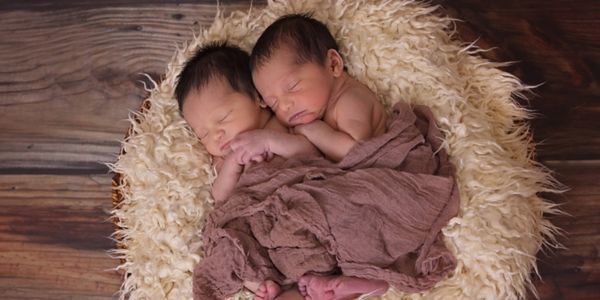

As an autistic adult, I see a lot of misconceptions about autism and it is something that I want to address.
I have five children between the ages of 17 and 5, and three of them are autistic to varying degrees. I myself was diagnosed as a teen. It is HARD, don’t get me wrong, but our house is also full of love, life and happiness. Autism isn’t an ‘end game’. It’s just a variation in how humans are born and neurodiversity is actually very interesting.
We see a lot of things online about autistic kids, but what about us autistic adults? We exist.
Here are some things I would like you to know, from an autistic persons brain…
Autistic children become autistic adults
And with this, a lot of us learn to ‘mask’ our symptoms through learning social cues through observation. So no, we don’t become ‘less’, ‘cured’ etc. We just adapt, and it is HARD. It can even be overwhelming. It also means that our insight matters – just because your child seems different to me in terms of expression of our autism, it doesn’t invalidate what I have to say about autism
NO, EVERYONE IS NOT ‘A LITTLE BIT AUTISTIC’ OR ON THE SPECTRUM IN SOME WAY.
You cannot be a little bit pregnant. It is not a sliding scale. Using that as an example, autism is something where you have it… or you don’t. The spectrum is for autistic people. Having one or two mild traits can be fairly normal but you have to pass a really strict test to get a diagnosis, there’s a triad of symptoms that you need to be experiencing, so these phrases are SO annoying, inaccurate, dismissive, and totally minimise the experience of an autistic person. They don’t reassure, they just irritate and make people doubt their diagnosis by trained professionals.
No, you cannot ‘look’ autistic’
“But you don’t look’ autistic is one that I hate, especially when my older teen daughters hear it. Pray tell, how does one ‘look’ autistic? There isn’t an autistic aesthetic. In fact, a lot of autistic girls can be really glamorous if make-up and fashion are a special interest, or if they’re trying hard to ‘mask’ and fit in with peers.
Google Daryl Hannah from Kill Bill, Courtney Love, and Stephanie Davis from Hollyoaks, and you’ll see what I mean. Gorgeous autistic women!
It isn’t an ‘epidemic’
Autism has always been around… Just less recognised, under different labels, or dismissed. If you could meet every single person in your family tree (if your child is neurodiverse) then you’d come across many different blossoms of neurodiversity as you go back through the generations. I bet many of us have an ‘odd’ grandparent who, these days, would absolutely get an autism diagnosis. ‘Back in the day’, many of us were labelled mentally ill or worse terms, and locked away. The spectrum has also become more broad to account for how diverse it can be.
Increased awareness and an improved diagnostic criteria has led to more diagnosis, but this doesn’t mean that MORE people are being born autistic for any reason (conspiracy theorists, stop it). We’re just more visible now!
Autistic people can be great parents
Every single group of diverse people will of course have members who aren’t great parents, but being autistic doesn’t automatically mean that you’ll be a ‘problem parent’. I have 5 children, 3 of whom are autistic like me (because autism is mostly genetic), and we’ve needed zero external involvement from anyone. We’ve found our way. This obviously won’t apply to everyone but it’s just an example of why people should be less quick to assume.
The autism spectrum doesn’t look how you think it looks…
It isn’t linear – it’s so much broader than that! Here’s a great image to show what I mean.

Credit: The Art Of Autism
Some symbols and charities used for autism awareness are offensive to some of us
The puzzle piece symbol is seen as offensive to many autistic adults as it minimises our experience and makes us a tragedy; we’re not ‘missing a piece’, we are who we are and should be accepted and celebrated. Also, the symbol implies that autism is a ‘childhood’ condition (as puzzles are mostly played with by kids). It obviously was never intended to be offensive and if you use it, we understand it’s not for nasty reasons but please don’t dismiss someone telling you that it’s not the best symbol to use.
So, no one is saying ‘stop’ using it, but perhaps consider using the rainbow infinity symbol instead as this more accurately depicts how diverse autism is!
Autism isn’t a mental illness
In the US, it falls under some mental health diagnostic criteria but fundamentally, autism itself is NOT a mental illness, it’s a developmental disorder. It can of course raise the risk of some mental illnesses, and having a mental illness is ok too – however, it can be annoying to be labelled something that isn’t accurate.
We are all different
You’ll probably know someone in your life right now who is autistic – either diagnosed, or undiagnosed, and not know because you’ve been pre-conditioned to believe that autism is a ‘boy’ thing that causes no eye contact, no empathy, super maths skills like Rain Main, Sheldon Cooper intelligence, monotone voice.
Nope.
Autism is a beautiful, diverse colour wheel. I wouldn’t have it any other way. And if your child is diagnosed, with the right support and love, they will have a great life too. Thank you for reading my story.
Written by The Unicorn Mum.



.png)






.jpg)




